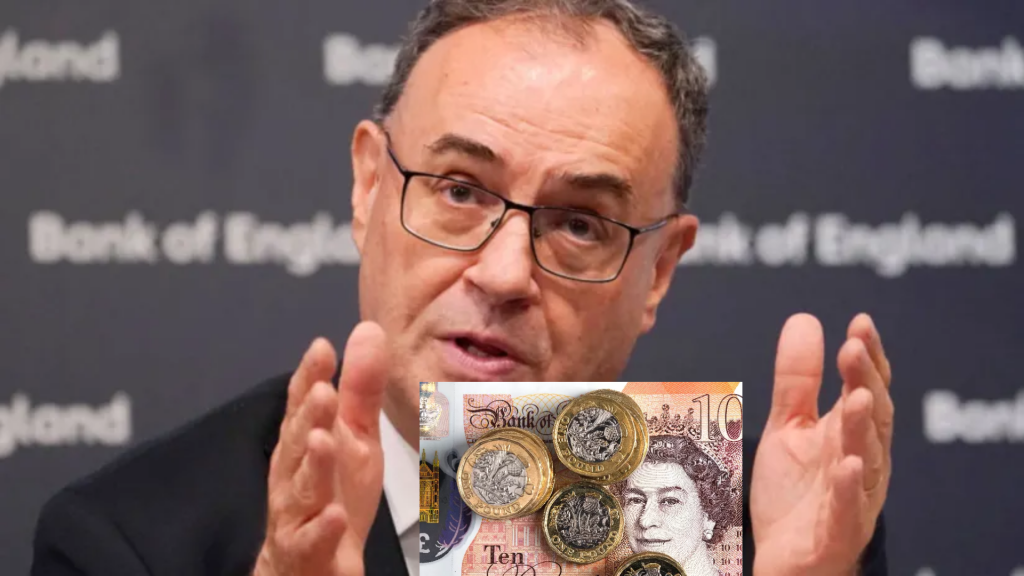Andrew Bailey, the Governor of the Bank of England, has once again found himself in the spotlight—and not for reasons he might prefer. Known for his measured speeches and his role in stabilizing the UK economy, Bailey recently shocked the nation with revelations about financial loopholes that seem to favor the wealthy while leaving ordinary citizens to pick up the tab. These developments have sparked widespread outrage and raised urgent questions about fairness in Britain’s financial system.
The Initial Revelation: A Nation Taken Aback
It all started during a routine parliamentary hearing on economic policy. While addressing inflation and interest rates, Bailey made an offhand comment about certain tax loopholes and financial mechanisms that remain legal but arguably unethical. Though he stopped short of endorsing these practices, the fact that they exist and are used predominantly by the elite sent ripples through the UK public.
Social media exploded. Twitter, Facebook, and Instagram were flooded with posts from outraged citizens demanding answers. How could such loopholes exist in a system meant to be fair and just? And why were they not being addressed?

What Are These Loopholes?
The financial loopholes Bailey referenced are complex, but they boil down to a few key strategies:
- Non-Domiciled Status (Non-Dom Loophole): This allows wealthy individuals who claim their permanent residence is outside the UK to avoid paying taxes on their global income.
- Corporate Tax Avoidance: Major corporations use offshore accounts and complex accounting practices to reduce their tax bills to almost nothing.
- Dividend Tax Breaks: High-income earners benefit disproportionately from lower tax rates on dividends compared to regular income.
- Inheritance Tax Workarounds: Wealthy families use trusts and other financial vehicles to minimize inheritance tax liabilities, ensuring generational wealth remains intact.
These mechanisms, while legal, create an uneven playing field. For the average taxpayer, who has no choice but to pay taxes on every pound earned, the revelation feels like a slap in the face.
A Closer Look: Who Benefits?
The primary beneficiaries of these loopholes are the ultra-wealthy—individuals and corporations with access to high-powered financial advisors and legal teams. According to recent reports, some of the UK’s richest individuals pay a smaller percentage of their income in taxes than middle-class workers. For instance:
- Non-Dom Status: Around 68,000 individuals currently claim non-dom status, costing the Treasury billions in lost revenue annually.
- Corporate Tax Avoidance: In 2023, it was estimated that tax avoidance by corporations cost the UK £32 billion.
This disparity has led to growing frustration among ordinary Britons, who face rising living costs and stagnant wages.
Bailey’s Justification: A Double-Edged Sword
In his defense, Bailey argued that these loopholes are not new and are part of a global financial system that the UK participates in. “It’s not just a British problem,” he said. “These are systemic issues that require international cooperation to address.”
While his statement is technically true, critics argue that it sidesteps the real issue: the UK government’s failure to close these loopholes. After all, other countries have taken steps to combat similar practices. For example:
- Australia has cracked down on corporate tax avoidance by implementing stricter laws on offshore accounts.
- Germany has introduced wealth taxes to address income inequality.
- France has reduced non-dom benefits significantly in recent years.
So why hasn’t the UK followed suit? Critics point to lobbying by powerful interest groups and a lack of political will.
Public Outrage: Voices from the Ground
The public’s response to Bailey’s comments has been overwhelming. Across the UK, people have taken to protests, social media campaigns, and petitions demanding action. One particularly viral tweet read:
“If the Bank of England knows about these loopholes, why aren’t they doing anything about them? Why are ordinary Brits always the ones who suffer?”
In Manchester, a group of activists organized a march under the slogan “Close the Loopholes Now.” Meanwhile, in London, protestors gathered outside the Bank of England with placards reading “Tax the Rich” and “Fairness for All.”
Political Fallout: What’s Next?
Bailey’s revelations have also had significant political ramifications. Opposition parties have seized the opportunity to criticize the Conservative government’s economic policies. Labour leader Keir Starmer called the situation “a national disgrace” and pledged to introduce legislation to close these loopholes if elected.
Meanwhile, Prime Minister Rishi Sunak, himself a former investment banker, has been accused of being out of touch with ordinary Britons. Sunak’s government has promised to “look into” the issue, but many see this as too little, too late.
The Broader Implications
Bailey’s comments have ignited a broader conversation about economic inequality in the UK. Experts warn that if these loopholes remain unchecked, they could exacerbate social divisions and undermine trust in public institutions.
For example:
- Economic Inequality: The gap between the rich and poor continues to widen. According to a 2023 report, the top 1% of earners now control more wealth than the bottom 50% combined.
- Public Services: Lost tax revenue means less funding for schools, hospitals, and infrastructure—services that ordinary Britons rely on.
- Social Unrest: Growing resentment toward the wealthy could lead to increased social and political instability.
Can Anything Be Done?
Closing these loopholes will not be easy. It requires coordinated efforts between policymakers, regulators, and international bodies. Key steps include:
- Legislative Action: Introducing laws to close tax loopholes and increase transparency in financial practices.
- International Cooperation: Working with other countries to address global tax avoidance strategies.
- Public Awareness: Educating citizens about these issues to build pressure on politicians to act.
Conclusion: A Call to Action
Andrew Bailey’s comments have opened Pandora’s box, revealing a system that many feel is rigged against them. While his intention may not have been to spark outrage, the outcome is clear: Britons are demanding change. Whether the government will rise to the occasion remains to be seen.
For now, one thing is certain: the UK’s financial system is under more scrutiny than ever before. And thanks to Bailey’s revelations, the call for reform is growing louder by the day.




